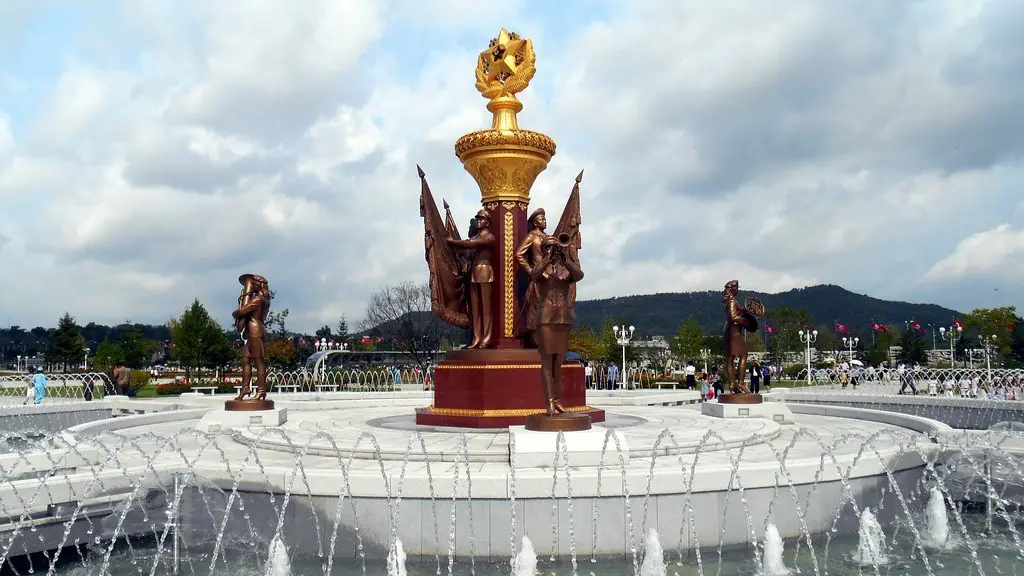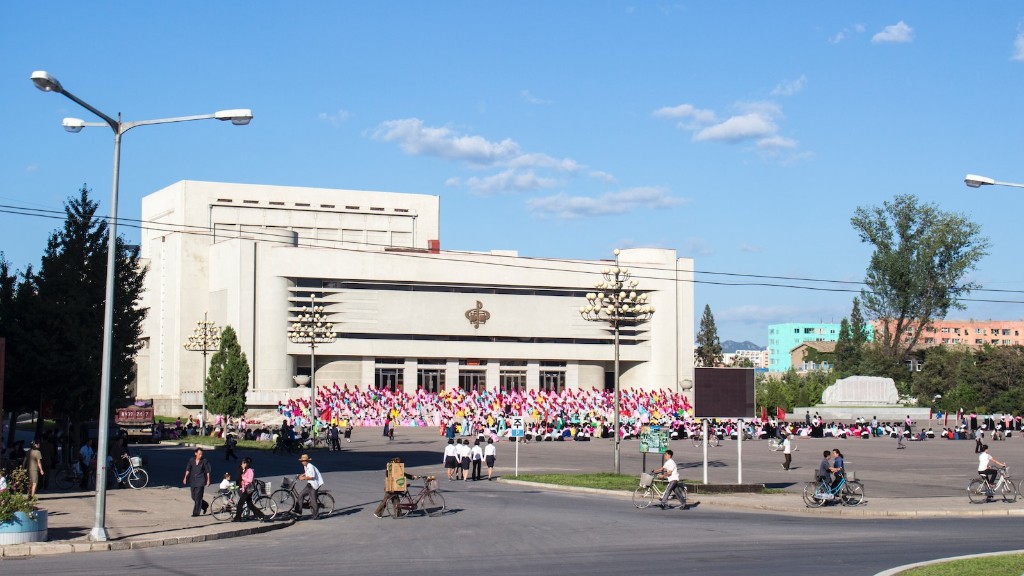And North Korea’s Political System
North Korea is an authoritarian socialist Republic in East Asia. Its official name is the Democratic People’s Republic of Korea, under the leadership of an autarchic supreme leader. Its government and society is built on a Marxist-Leninist foundation, inspired by the legacy of Kim Il-Sung, North Korea’s founder and first leader. North Korea is often referred to as a totalitarian state due to its highly oppressive and restrictive government policies and its draconian punishments for those who deviate from the country’s official ideology.
Despite its often-criticised policies, North Korea is a recognised nation-state and is recognised by the United Nations. It has an area of approximately 120,540 km² and a population of around 25 million people. Politically, power is concentrated in the hands of the supreme leader, currently Kim Jong-Un. In practice, the actual power is held by the supreme leader’s closest advisers and a coterie of senior generals.
North Korea stands apart from the rest of the world in terms of its economic and political structures. Unlike most countries, North Korea does not have an independent judiciary and does not have protections for civil and political rights. The government instead relies on oppressive mechanisms that include public surveillance, censorship, and labor reformatory camps for those deemed to have violated the state’s laws and principals.
In addition to its authoritarian and oppressive political system, North Korea maintains a centrally planned command economy. The country is a closed economy and its basic economic decisions are made by the central government in Pyongyang. The country is heavily reliant on foreign trade and aid, primarily from China, and is dependent on the regulated distribution of essential goods and services.
North Korea’s economic policies have caused significant damage to the country’s economy. In addition to the lack of economic freedom, North Korea also suffers from a lack of access to financial services and technological infrastructure. North Korea ranks among the bottom countries in terms of indicators such as GDP per capita and labour productivity.
And North Korea’s Social Structure
North Korea remains one of the most oppressive countries in the world when it comes to its population’s rights to freedom of movement, assembly, speech and opinion. Despite its extensive network of monitoring, control, and surveillance mechanisms, citizens are still able to access certain types of information and communication, particularly online. Restrictions are particularly pervasive in terms of social media and internet use, but these regulations and sanctions are often circumvented by citizens, including through the use of virtual private networks.
North Korea also operates a rigid and hierarchical social structure. Government officials, party members and a loyalist elite are awarded privileged access to resources, while the general population is left with restricted access to basic goods and services. This system is further reinforced by political indoctrination and propaganda that support theses ideology and system.
The social structure of North Korea is also connected to its gender system. Gender roles in the country are heavily gendered, based on the Confucian values of “male superiority” and “female subordination.” Women are still primarily subject to dominant roles in public and private life, and are expected to remain loyal to the state and support their husbands and families.
And North Korea’s International Relations
North Korea is one of the most geopolitically isolated countries in the world. It has an extremely confrontational relationship with South Korea and the United States, as well as with its regional neighbours Japan and China. North Korea is also under a range of punitive sanctions from the United Nations in an attempt to stop the country from developing nuclear weapons.
Despite its aggressive foreign policy, North Korea is also capable of displaying pragmatic and rational behaviour in its international relations. It has recently demonstrated openness towards dialogue with South Korea, the United States and other countries in the region. North Korea also has diplomatic relations with a number of countries and is a member of the United Nations, with a permanent seat in the General Assembly.
And North Korea’s Human Rights
North Korea has one of the worst human rights records in the world. It is regularly denounced in reports from international organisations for widespread violations of rights such as freedom of speech, freedom of movement, and the right to a fair trial. In addition to these abuses, the government also continues to use hard labour camps to punish political dissidents, minority groups, and citizens who attempt to defect from the country.
The international community has urged North Korea to end its appalling human rights record, through sanctions, petitions and a range of diplomatic efforts. However, these efforts have not had the desired impact, and the country continues to defy international laws and norms.
And North Korea’s Art and Culture
Despite its isolation and oppressive government, North Korea continues to have a rich and diverse culture. North Korea is well known for its art and music, which are heavily influenced by its long history and traditional beliefs. The country is also home to a number of important cultural sites, including ancient royal tombs, Buddhist monasteries and temples.
North Korea also has an extensive film industry, producing a range of feature films, documentaries and animations. Despite the extensive censorship and propaganda, North Korean movies have been praised for their artistic quality and have even gained an international following.
And North Korea’s Education System
The education system in North Korea is based on the country’s Soviet-era education system, which is geared towards a single-minded focus on the state and its ideology. Education is highly politicised and is used to indoctrinate children early on with the country’s philosophies and values. Education is highly selective, with the elite class having access to more resources and advanced educational opportunities, while the rest of the population must complete the same state-mandated curriculum.
North Korea’s education system also suffers from a severe shortage of resources and basic infrastructure, with access to laboratories, libraries, and educational materials often limited to specialized schools and higher education institutions. The quality of education in the country is also widely criticized.
And North Korea’s Health and Wellbeing
North Korea faces a range of health challenges, including a high rate of communicable diseases, inadequate access to healthcare, and a lack of adequate nutrition. The country is plagued by a lack of basic sanitation and hygiene, as well as by water shortages. The country is also facing an epidemic of HIV/AIDS and severe levels of alcohol abuse.
North Korea’s healthcare system is in dire need of reform, primarily due to a severe lack of resources, equipment, and medical professionals. In addition, access to medical care is heavily restricted and focused on the elite, with the vast majority of citizens having little or no access to adequate healthcare.
And North Korea’s Domestic Politics
North Korea’s domestic politics are highly controlled, with the government monitoring, restricting, and punishing those who attempt to deviate from the official ideology. Despite this, North Korea does have an established system of political parties and elections. The majority of the population are members of the Korean Workers’ Party, the Communist Party and its affiliated organisations, which control all aspects of the country’s political and social life.
The actual power of the country is held in the hands of the Supreme Leader and his coterie of senior advisors. These advisors are at the centre of a powerful system of patronage and control, and have a strong influence over government decisions and policies. The government has also recently introduced a series of constitutional amendments designed to further concentrate power in the hands of the supreme leader.


